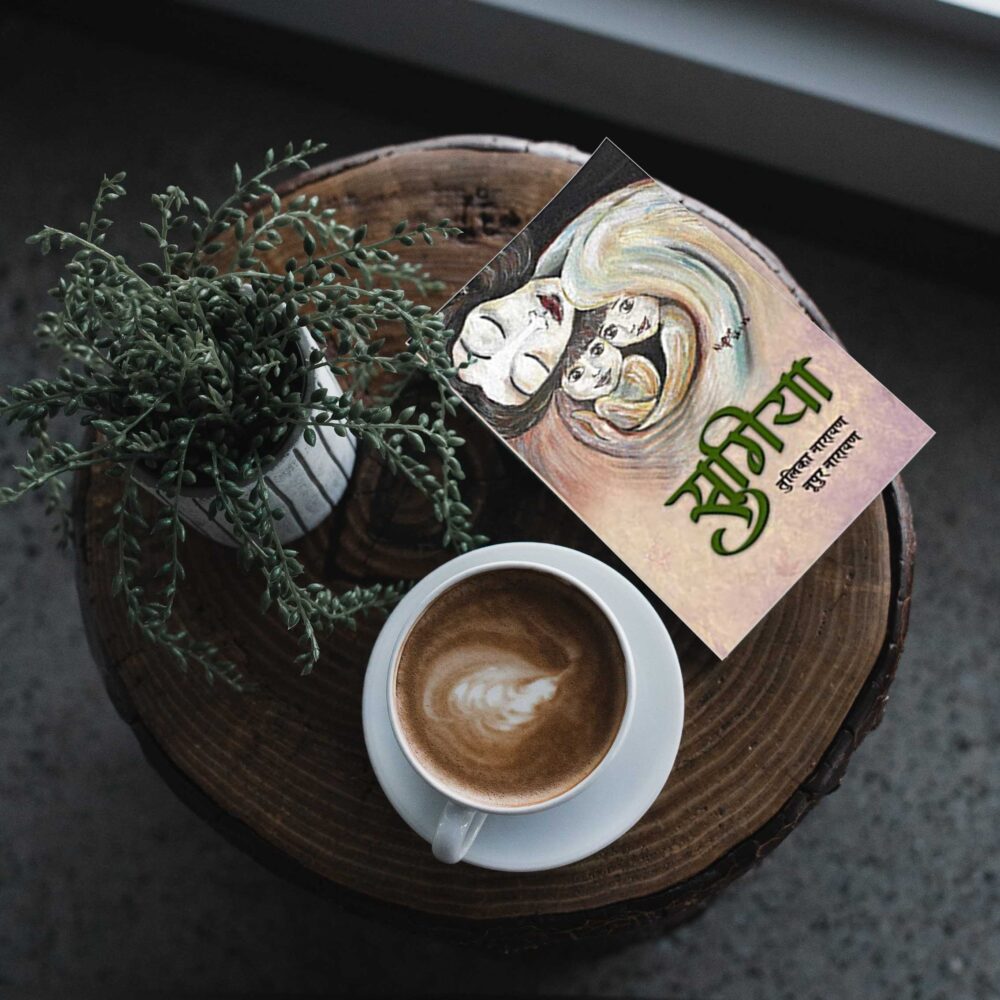Out of the many emotions that a human being experiences in their lifetime, the emotional connection with the mother is the first to form and lasts longer than any other emotional connection. Literary writing is replete with examples that express the profound emotional connection between a mother and her child at different stages of life. The beauty of this relationship is explored by the present-day poets in various situations through different expressions in “Sugiya” by Tulika Narayan and Nupur Narayan. The authors talk about this bond through different forms of expression like poetry and picture depiction. This interesting mixture gives poetry reading an in-depth experience for the readers.
“Sugiya” as a title may not explain much to the readers, but it does make the readers curious about what the content of the text would be. This content depiction is matched by the cover image, which does absolute justice to it. True to its content, the cover shows the protective image of a mother who tries to shield her children from any possible harm for their better life. It also makes readers think and predict the different aspects that the poetry collection would be about. The introduction also tells just enough to make the readers more curious and interested in reading and knowing about what “Sugiya” contains.
The poetic style followed in “Sugiya” is pictorial and graphic. It picks up situations from the contemporary scenario and the happenings of the present day. It presents them in the form of a dialogue between mother and daughter where the daughter speaks and assumes that the mother would be listening to her somewhere. This gives beauty to the text and clarity of thoughts that a daughter would have towards her mother. The presentation of this bond gives a realistic feeling and conveys emotion more strongly. It makes the readers develop an instant connection with the text and understand the emotions and thoughts of the authors.
“Sugiya” interestingly features poetry that has poems without any names and instead has a narrative flow that flows from one poem to another. This develops a connection between the poems and makes reading a joyful experience for the readers. “Sugiya” packs poetry with emotions, sensitivity, and real-life-like similarity. The connection as depicted through the relation and conversation between the mother and daughter also shows the changes in thinking due to the difference in generations. This difference in generations comes from the impacts of changing technology as well as scenarios. The recent effects of the pandemic and its outbreak also find expression in poetry.
The readers do not get to hear the version of the mother and hear the voice of the daughter more prominently. But the manner in which the daughter speaks gives an idea of what the mother would have said. The image depictions make poetry reading a surreal experience for the readers. The images show how art can show emotions and give a pictorial form to poetic words. The fact that “Sugiya” is written in Hindi gives the text a stronger touch of the Indian flavour and can make Hindi poetry readers instantly connect with the book. They may want to read it again and even refer in their friend circles or to other poetry lovers.
“Sugiya”, book published by Astitva Prakashan, is a mixture of emotions, the potency of a woman, the inner thoughts which may not surface otherwise, and an idea of how women perceive and understand things. This presentation in the form of a monologue gives the book a feministic touch where the readers get to hear the million voices in a woman’s brain, which never find an actual voice and are lost in silence. It also shows the struggle of women for independence, to be heard, and to find a justified representation in a world that primarily focuses on subduing and subjugating them. This would make the text relatable for the many women who struggle to be heard in a patriarchal world. In that manner, “Sugiya” by Tulika Narayan and Nupur Narayan would appeal to more number of readers.



